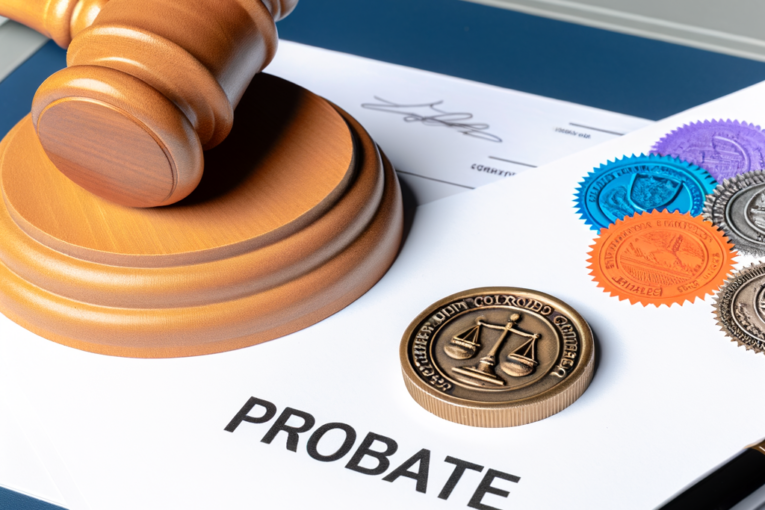Choosing the Right Business Structure
The Importance of Selecting the Right Business Structure
When starting a business, selecting the appropriate business structure is a critical decision that can have long-term implications. The business structure you choose will impact various aspects of your operations, including legal obligations, tax obligations, and personal liability.
Key Takeaways
- Sole proprietorships are easy and inexpensive to form. They require minimal legal formalities compared to other business structures.
- As a sole proprietor, you have complete control over decision-making and enjoy flexibility in running the business. However, you also have unlimited personal liability.
- Sole proprietorships allow you to report business income and expenses directly on your personal tax return. But you have limited access to external financing for growth.
- A sole proprietorship lacks continuity should the owner retire, become disabled, or pass away. It may not be ideal if you plan to expand the business substantially.
- Consider the nature of your business, liability concerns, and growth plans when deciding if a sole proprietorship is the right structure. Consult a legal professional for guidance on selecting the optimal business entity.
Choosing the right business structure
The Importance of Selecting the Right Business Structure
When starting a business, selecting the appropriate business structure is a critical decision that can have long-term implications. The business structure you choose will impact various aspects of your operations, including legal obligations, tax obligations, and personal liability.
Introduction to Sole Proprietorship
One of the most common business structures is the sole proprietorship. It is frequently the choice of first-time business owners and small-scale entrepreneurs because it is the easiest and most straightforward. In a sole proprietorship, the business and the individual are considered to be one entity. This means that there is no legal distinction between the owner and the business itself.
One of the key advantages of a sole proprietorship is its ease and simplicity of formation. Unlike other business structures, such as partnerships or corporations, establishing a sole proprietorship requires minimal paperwork and formalities. In most cases, all that is required is obtaining any necessary licenses or permits and registering a business name.
In addition to its simplicity, a sole proprietorship offers the owner complete control and decision-making authority over the business. This level of autonomy allows for quick and efficient decision-making, which can be advantageous for small businesses that need to adapt swiftly to market changes.
However, it’s important to note that sole proprietorships also have their disadvantages. One significant drawback is unlimited personal liability. In a sole proprietorship, the owner is personally responsible for all business debts and liabilities. This means that if the business faces financial difficulties or legal claims, the owner’s personal assets may be at risk. It’s crucial to consider liability concerns and explore potential mitigating strategies when choosing a business structure.
As you evaluate the advantages and disadvantages of a sole proprietorship, it’s essential to consider factors such as the nature of your business, liability concerns, and your growth and expansion plans. These considerations will help you determine if a sole proprietorship is the right fit for your specific circumstances.
Advantages of Sole Proprietorship
A sole proprietorship is a popular business structure for many first-time business owners due to its numerous advantages. Let’s explore some of the key benefits of opting for a sole proprietorship.
Easy and inexpensive formation
Setting up a sole proprietorship is easy and inexpensive compared to other business structures, such as partnerships or corporations. As a sole proprietor, you are the sole owner of the business, allowing you to make decisions and take action without the need for extensive legal processes. This simplicity makes it an attractive option for individuals looking to start their own small business.
Unlike other business structures that may require formal filings and registration fees, sole proprietorships typically have minimal administrative requirements. In most cases, you can start operating your business simply by obtaining any necessary licenses or permits based on your location and industry. For detailed guidance on how to start a small business, refer to our article on how to start a small business.
Complete control and decision-making authority
As a sole proprietor, you have complete control over your business. You make all the decisions and have the authority to determine the direction and operations of your company. This level of autonomy allows for quick and efficient decision-making, enabling you to respond promptly to market changes and customer demands.
With no partners or shareholders to consult or reach a consensus with, you have the freedom to implement your vision and strategies without any external interference. This flexibility can be especially beneficial for individuals who prefer to run their businesses according to their own values and preferences.
Simplicity in Taxation and Reporting
Another advantage of a sole proprietorship is the simplicity of taxation and reporting. Unlike corporations or partnerships that have separate tax returns, sole proprietors report business income and expenses on their personal tax returns. This eliminates the need for additional tax filings, streamlining the process and reducing costs.
Additionally, sole proprietors can benefit from certain tax deductions, such as home office expenses or business-related travel costs. These deductions can help reduce the overall tax burden and increase the profitability of the business.
Keeping accurate records of your income and expenses is essential for tax purposes. Maintaining organized financial records allows you to easily determine your business’s financial health and meet reporting requirements. For more information on registering your business name and other important considerations, refer to our article on registering a business name.
The advantages of a sole proprietorship, including easy and inexpensive formation, complete control, and simplicity in taxation and reporting, make it an appealing option for many entrepreneurs. However, it’s important to consider the unique circumstances of your business and consult with a legal professional to determine the most suitable business structure for your needs.
Disadvantages of sole proprietorship
While there are several advantages to operating as a sole proprietorship, it’s important to be aware of the potential disadvantages as well. Understanding these drawbacks can help you make an informed decision about whether a sole proprietorship is the right business structure for you.
Unlimited personal liability
One significant disadvantage of a sole proprietorship is the concept of unlimited personal liability. As a sole proprietor, you and your business are considered one entity. This means that you are personally responsible for all debts, liabilities, and legal obligations of the business. In the event that your business incurs debts or faces legal issues, your personal assets, such as your home or personal savings, may be at risk.
To mitigate this risk, it’s important to separate your personal and business finances. Opening a separate bank account for your business and maintaining accurate financial records can help establish a clear distinction between your personal and business assets. Additionally, you may want to consider obtaining appropriate business insurance to provide an extra layer of protection.
Limited Access to Capital
Another potential disadvantage of a sole proprietorship is limited access to capital. As the sole owner of the business, you may find it challenging to secure financing or attract investors. Lenders and investors often prefer to work with more established business structures, such as corporations or partnerships, which offer greater stability and potential for growth.
Without the ability to raise significant capital, expanding your business operations or pursuing large-scale projects may be difficult. As a sole proprietor, you may need to rely on personal savings, loans, or other creative financing options to fund your business activities.
Lack of continuity and transferability
Sole proprietorships also face the challenge of a lack of continuity and transferability. The business’s existence is tied to the owner, which means that the business may cease to exist upon the owner’s retirement, disability, or death. Unlike other business structures, such as corporations or partnerships, there is no separate legal entity that can carry on business operations indefinitely.
If you plan to pass on your business to future generations or sell it to another party, a sole proprietorship may not be the most suitable option. Consider the long-term goals and aspirations you have for your business before deciding on the appropriate business structure.
Factors to consider
When deciding on the most suitable business structure for your venture, there are several factors to consider. These factors will help you determine whether a sole proprietorship is the right choice for your business.
Nature of business
The nature of your business plays a crucial role in determining the viability of a sole proprietorship. If your business is relatively small and does not involve complex operations, a sole proprietorship may be a suitable option. People who run independent consulting practices, small retail stores, or freelance businesses frequently choose sole proprietorships. However, if your business involves higher levels of risk, requires substantial investment, or has a need for multiple owners, alternative business structures such as partnerships or corporations may be more appropriate. For more information on different types of business entities, refer to our article on types of business entities.
Liability Concerns
Another factor to consider when contemplating a sole proprietorship is the level of liability you are comfortable with. As a sole proprietor, you have unlimited personal liability for any debts or legal obligations incurred by your business. This means that your personal assets, such as your home or savings, may be at risk if your business faces financial or legal troubles. If you are concerned about personal liability and wish to protect your personal assets, forming a separate legal entity such as a limited liability company (LLC) or a corporation may be a more suitable option. For a detailed comparison, you can explore our article on LLC vs. corporation.
Growth and Expansion Plans
Consider your growth and expansion plans when evaluating the suitability of a sole proprietorship. Sole proprietorships are relatively easy to set up and maintain, but they may have limitations when it comes to accessing capital and attracting investors. If your business has aspirations for rapid growth or if you anticipate the need for significant external funding, you may find it more advantageous to choose a business structure that allows for greater access to capital, such as a partnership or corporation. These structures provide opportunities to bring on additional owners and investors, facilitating expansion and raising capital more easily.
It’s always recommended to seek professional advice from an attorney or a business formation expert to ensure that you fully understand the legal and financial implications of your decision.
Conclusion
When deciding on the appropriate business structure, it’s essential to take into account factors such as the nature of the business, liability concerns, and growth and expansion plans. Consider consulting with a legal professional to fully understand the legal and financial implications of each business structure.
Remember, a sole proprietorship is just one of many types of business entities available. It’s important to explore other options, such as LLCs and corporations, to determine which structure to use. best aligns with your business goals and long-term vision.
FAQs
A sole proprietorship is a type of business structure in which an individual owns and operates the business. It is the simplest form of business and is not considered a separate legal entity from its owner.
The advantages of a sole proprietorship include complete control over decision making, easy and inexpensive setup, flexibility in operations, and direct access to profits.
The disadvantages of a sole proprietorship include unlimited personal liability, difficulty in raising capital, limited management skills, and lack of continuity.
A sole proprietorship is an unincorporated business owned by a single individual, while an LLC is a separate legal entity that provides limited liability protection to its owners.
Yes, a sole proprietorship can be a small business. In fact, many small businesses start as sole proprietorships due to their simplicity and ease of setup.
To start a sole proprietorship, you need to identify a viable business idea, create a business plan, obtain necessary licenses and permits, register your business name, and comply with local tax requirements.
The tax advantages of a sole proprietorship include the ability to report business income and expenses on the owner’s personal tax return, access to certain deductions and credits, and the potential for lower overall tax rates.
Yes, you can use your personal name as the business name for a sole proprietorship. However, if you want to operate under a different name, you may need to register a “Doing Business As” (DBA) name.
The requirements for business licenses vary depending on the location and type of business. It is important to check with your local government or licensing agency to determine if a license is required for your sole proprietorship.





